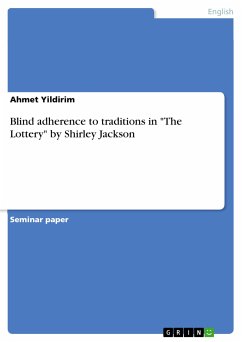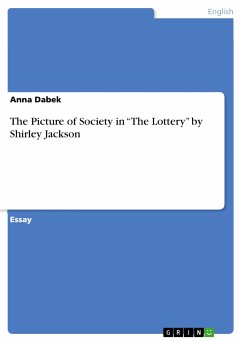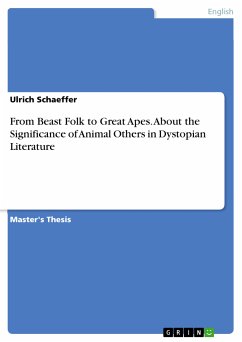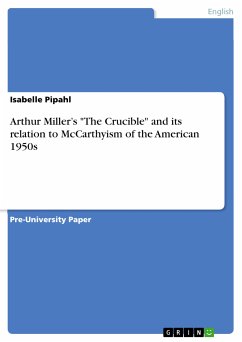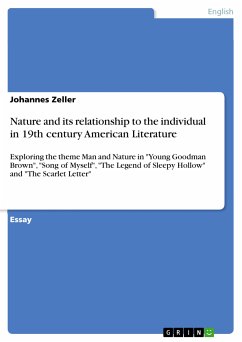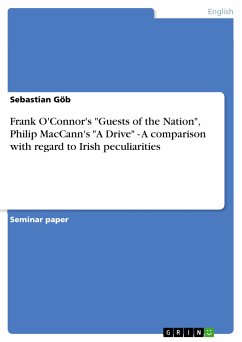Seminar paper from the year 2014 in the subject English Language and Literature Studies - Literature, grade: 1,7, University of Osnabrück, language: English, abstract: The Lottery, written by Shirley Jackson, published in 1948, is a prime example for a society that blindly follows an outdated and harmful tradition without questioning it. Usually, winning the lottery implies that one participant gets rewarded, but in Shirley Jackson's short story, winning The Lottery means getting stoned to death by the other participants, that is, by their neighbours, friends and even own family members. My claim is that traditions which have lost their meaning and are followed blindly can cause otherwise normal people to act abnormally without thinking. Thus, the human nature is not inherently violent, but it is the unthinking adherence to their tradition which is the primary cause of their violence and cruelty. After all, groups of people can easily influence human nature as well as their distinction of good and evil provided that the people uncritically follow a tradition which they do not consider as a barbaric event, but as a normal civic event taking place annually. My aim is to examine, in a close reading, the effects of blind adherence to traditions on the characters' behaviour in the story. In order to this, I will verify the point that the villagers blindly follow their tradition, although they have forgotten its origin significance. Afterwards, I will analyze in how far human nature plays a role when it comes to act brutally and evil, as every villager participates in the murder after all. I finally want to focus on the children's behaviour in order to demonstrate that there is still hope for villagers of breaking with their barbaric tradition. In order to fully understand the theme, it is important to know what the short story is about, how it develops towards the end and who the main characters are that will be addressed in
Dieser Download kann aus rechtlichen Gründen nur mit Rechnungsadresse in A, B, BG, CY, CZ, D, DK, EW, E, FIN, F, GR, HR, H, IRL, I, LT, L, LR, M, NL, PL, P, R, S, SLO, SK ausgeliefert werden.

